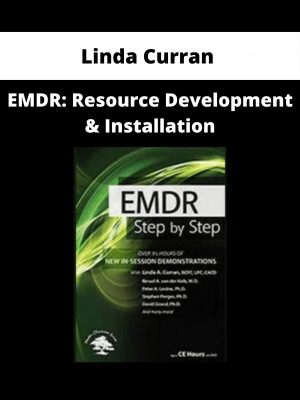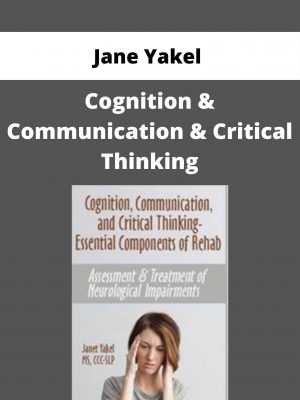Tom Smith – Pharmacology, What You Need to Know About Medications in a Rehab Setting
$130 Original price was: $130.$48Current price is: $48.
Shopping Instructions:
- DISCOUNT 15% : SHOP15
- Product Delivery: Within 1 – 12 hours after purchase.
Available for Pre-Order. This product will be available within a few days.
Tom Smith – Pharmacology, What You Need to Know About Medications in a Rehab Setting
Purchase the DVD or CD recording from our product store!
- Treatment for ADHD, Autism, Stroke, Heart Attack, Diabetes and Others
- The latest drug information on the most common conditions
- Medication side effects and their impact on your patients
- Medication issues specific to patient age and co-morbid conditions
- “Off-label” uses of medications
Patients you work with everyday are taking various medications, including pain and cardiac, anti-inflammatories, muscle relaxers, and anti-anxiety. Attend this seminar by Dr. Tom Smith, credentialed as a doctor of pharmacy & licensed mental health counselor, and learn the most up-to-date information on drugs and how they can affect your patients rehabilitation. Tom will be addressing Inderel, Abilify, Lipitor, Plavix, Xanax, Vicodin, Oxy-Contin and many other drugs in this seminar.
Leave this seminar knowing:
- Why medications are prescribed for certain conditions
- Potential combinations
- Strategies to help your patient understand how medication aids in their recovery
- Tools to help your patient manage unpleasant side effects, including: altered balance, coordination, digestion and cognition
- Medication issues specific to age and co-morbid conditions affect rehabilitation
- The potential for substance abuse
- Non-compliance issues
OUTLINE
Brain chemistry and the role of neurotransmitters
- Mechanisms of drug action
- FDA approval process regarding indications, “off label” and “black box” warnings
- Issues of age and co-morbid conditions
- Medication compliance
- Tools you can use to understand your patients’ medication
- Risks vs. benefits of medications
Neurological Conditions
- Stroke
- Cerebral palsy
- Multiple Sclerosis
- Parkinson’s Disease
Spinal Cord Injuries
- Spina Bifida
- Drug effects on the sympathetic/parasympathetic nervous system
Cardiovascular Conditions
- Blood modifiers
- Dysrhythmia stabilizers
- “Lifestyle changes”
- Substance abuse potential
- Psychotherapist referral
Hypertension
- Blood pressure medications
- Potential side effects
- Falls
- Fainting
- Dietary concerns
Orthopedic Injuries
- The pharmacology of pain and inflammation
- Hip/shoulder/knee replacements
- Controversy about drugs for osteoporosis
- Side effects
- Abuse/misuse
- Addiction
- Withdrawal
- Overdose
- Non-compliance and rebound
- Gastrointestinal side effects
Would you like to receive Tom Smith – Pharmacology, What You Need to Know About Medications in a Rehab Setting ?
Mental Health Drugs
- Different classes of drugs, how they “work”, and different clinical uses
- Antidepressants to Alzheimer’s, with autism, anxiety, hot flashes, and psychosis in between
- Side effects and risk factors for the different classes of mental health drugs
ADHD
- The Stimulants
- Non-stimulants
- Medications previously used for blood pressure
Autism
- Behavioral medications
- Side effects that interfere with rehabilitation goals
- Cholesterol
OBJECTIVES
- Explain the concepts behind “mechanism of action” and “therapeutic response” from medications for specific conditions.
- Summarize how a patient’s age and co-morbid conditions affect rehabilitation.
- Describe why prescribers may use medications “off-label” and the potential benefits and drawbacks of such use.
- Identify common side effects associated with drugs used to treat ADHD, autism, stroke, heart attack, diabetes, and other conditions.
- Interpret how to use a tool that will help your patient adhere to medication therapy.
- Summarize the logic behind using “foods that require a prescription” to treat certain health conditions.
Related products
NLP & Hypnosis
NLP & Hypnosis
NLP & Hypnosis
NLP & Hypnosis
NLP & Hypnosis
NLP & Hypnosis












